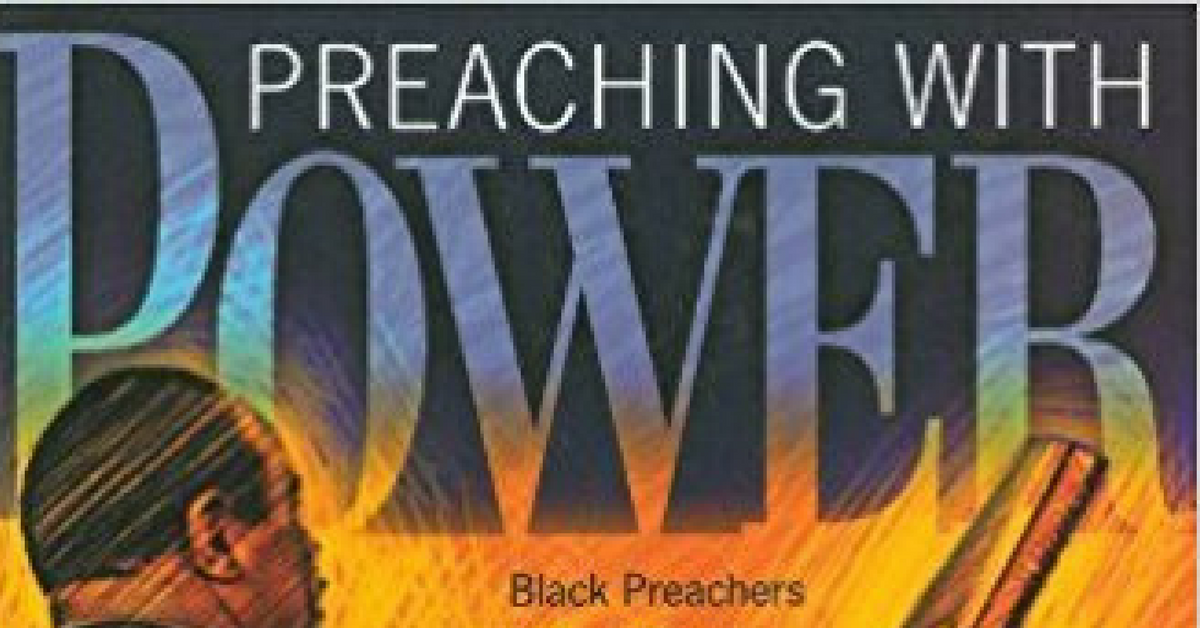 The next interview is with Charles Bradford. Elder Bradford has had a very productive career within adventism including becoming the first AFrican American to be elected presdient of the North American Division of Seventh-day Adventists. His career has been largely as an evangelist and church administrator.
The next interview is with Charles Bradford. Elder Bradford has had a very productive career within adventism including becoming the first AFrican American to be elected presdient of the North American Division of Seventh-day Adventists. His career has been largely as an evangelist and church administrator.
Understanding of Preaching
Elder Bradford’s theology of preaching is based in the fact that God is the source of all preaching. Bradford emphasizes that the “preacher is one amoung many” in a “preaching community.”
?
Method of Sermon Preparation
Elder Bradford states that his method of sermon preparation is from the New York Theological Seminary. The approach consists of first looking at the text noting “words, events, thoughts, and nuances.” Next he suggests that we develop a theme from this observation and from study. Bradford notes that he believs that one can get a theme from any text. Then Elder Bradford writes out an outline. After completion of the outline, Elder Bradford sets the sermon aside for “a few days.” After that he puts on the flesh.
This time is important to Bradford who states that it takes a long time to put a sermon together. He compares it to the growing of a good crop of strawberries. It takes a long time.
One cannot forget that the preparing of the preacher is very important. Elder Bradford suggests that we make use of the Mystical Disciplines. This is interesting in that one is not often used to hearing Adventists talk about this, but we usually use the terms prayer, meditation, study, etc. I think that such a revival of these disciplines is very much needed today.
Understanding of Adventist Preaching
Elder Bradford’s section of the book says very little about traditional Adventist preaching which is surprising in that he has much to say about it in his book Preaching to the Times. That book is a very valuable addition to any Advnetist preacher’s library. In future weeks I hope to discuss that book in this blog. But Elder Bradford gives some hints on his thinking on Adventist Preaching in this intereview. First Elder Bradford emphasizes that his influences on preaching came from Adventist sources. Also Elder Bradford seeks to emphasize that we cannot fall into the trap of the “wealth and success…pop psychology” gospel. Next Elder Bradford talks about using Advnetist sources like the Adventist Bible Commentary as well as other commentaries from other denominational traditions.
Elder Bradford reminds us, without saying their names, that we cannot fall into the trap of making the gospel pop-psychology or about wealth and success down here.
Understanding of Black Preaching
Elder Bradford believes that Black preaching is “issue oriented.” Here Black preaching addresses issues that are important to the Black community. Elder Bradford however is quick to state that the Gospel is greater than any Black or White issue and transcends them both.
I think that Elder Bradford’s concern of a Gospel that is only relevant to or only worries about issues in one community can be problamatic. I think it is interesting that other Black Preachers are wrestling with this issue. Henry Mitchell stated that he beleives that the hope of American Christnaity is in the hands of the Black Church. The idea was that the black church has always stood with the weak and poor and thus represents a struggle for rightness in the world. Not just in terms of Race, but of all who are oppressed.
I am also reminded of a class in the Theology and ministry of the Black Church by Dr. Forrest Harris. The teacher tried to emphasize that when the Black church is true to its principles of equality it is relevant to more than just black people.
 Finally, I am reminded of Pastor Frank Thomas who wrote “They Like to Never Quit Praising God.” In his lectures on the Book he teaches that we become universal through our very particularism. In other words when a Black preacher goes deep enough into his/her own expereince the preacher teaches a universal Gospel.
Finally, I am reminded of Pastor Frank Thomas who wrote “They Like to Never Quit Praising God.” In his lectures on the Book he teaches that we become universal through our very particularism. In other words when a Black preacher goes deep enough into his/her own expereince the preacher teaches a universal Gospel.
I think Elder Bradford reminds us like these other voices that our Gospel cannot become provincial and only applicable to a certain group. But like these other voices, I think that Black “issue” teaching can become universal or trasncendent if we, as Frank Thomas states, push it.
 The key here is that the cross of Christ must be at the center of any great Adventist preaching, according to Ellen White. The cross provides the place where mercy and truth will unite. If you want to make sure that you are providing the balance between mercy and truth, then you must have the cross of Christ at the center of all of your expositions.
The key here is that the cross of Christ must be at the center of any great Adventist preaching, according to Ellen White. The cross provides the place where mercy and truth will unite. If you want to make sure that you are providing the balance between mercy and truth, then you must have the cross of Christ at the center of all of your expositions.





 Dr. R. Clifford Jones has?edited a book of interviews with prominent African American Seventh-day Adventist preachers entitled Preaching with Power.? You can obtain the book from the ministerial association.? In the next 11 posts I will look at each preacher?s
Dr. R. Clifford Jones has?edited a book of interviews with prominent African American Seventh-day Adventist preachers entitled Preaching with Power.? You can obtain the book from the ministerial association.? In the next 11 posts I will look at each preacher?s